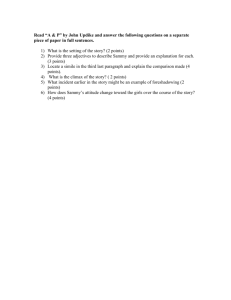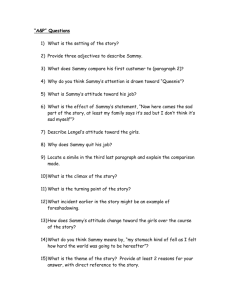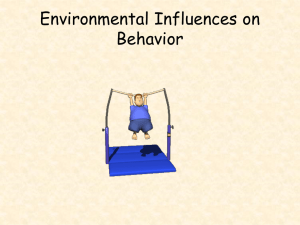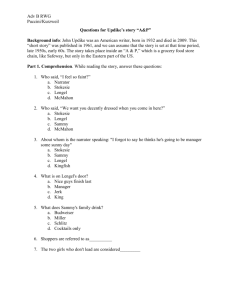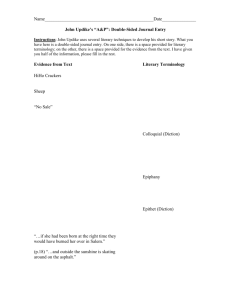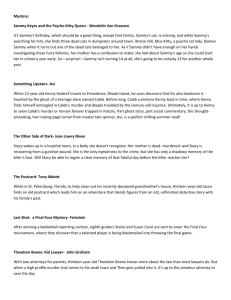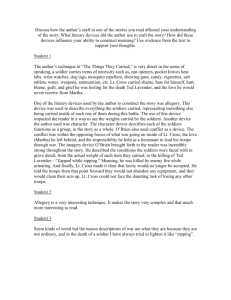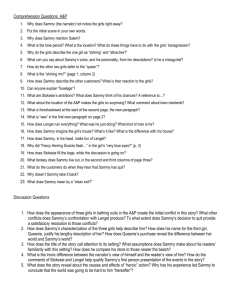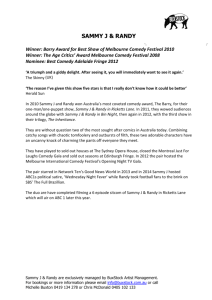high school and college level questions
advertisement
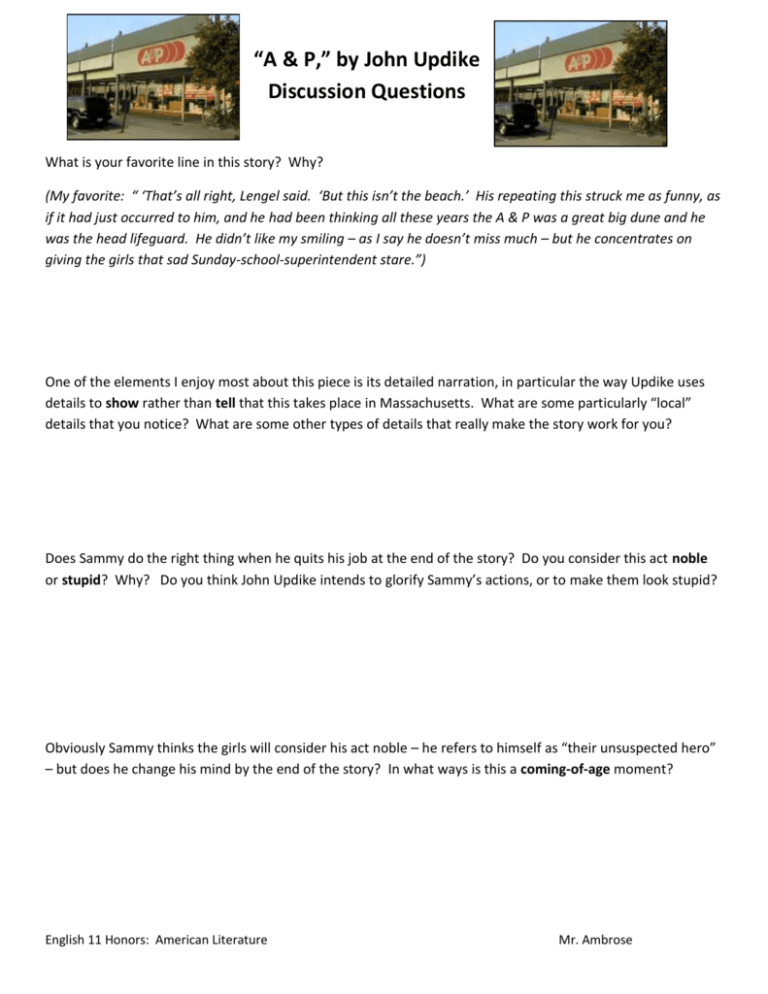
“A & P,” by John Updike Discussion Questions What is your favorite line in this story? Why? (My favorite: “ ‘That’s all right, Lengel said. ‘But this isn’t the beach.’ His repeating this struck me as funny, as if it had just occurred to him, and he had been thinking all these years the A & P was a great big dune and he was the head lifeguard. He didn’t like my smiling – as I say he doesn’t miss much – but he concentrates on giving the girls that sad Sunday-school-superintendent stare.”) One of the elements I enjoy most about this piece is its detailed narration, in particular the way Updike uses details to show rather than tell that this takes place in Massachusetts. What are some particularly “local” details that you notice? What are some other types of details that really make the story work for you? Does Sammy do the right thing when he quits his job at the end of the story? Do you consider this act noble or stupid? Why? Do you think John Updike intends to glorify Sammy’s actions, or to make them look stupid? Obviously Sammy thinks the girls will consider his act noble – he refers to himself as “their unsuspected hero” – but does he change his mind by the end of the story? In what ways is this a coming-of-age moment? English 11 Honors: American Literature Mr. Ambrose And now some college-level questions, courtesy of the English Department at Creighton University: Is Sammy's quitting a form of rebellion or a statement of some sort? Does it have any meaning? What is he rebelling against? Are there unconscious targets of his rebellion? Who is the enemy here? Are there any forms of oppression at work in the story? Who is oppressed (or "embarrassed" for that matter)? Is Sammy's standing up for the girls in some way a form of standing up for himself? On what phenomena is Updike commenting in this short story? What's the connection between sexual titillation, a chain grocery store, and a rebel without a cause? What makes Sammy quit? Why was he not so sad about it? Why was the world going to be so difficult for him now? Is Sammy fully aware of the character and implications of his gesture? What tensions are at work in the story's situation? What kind of business is the A&P? What do the attitudes of the manager reveal about his character and that of the business that he manages? What ethic is at work here? (remember this is New England). Does the story take place in a traditional, capitalist, or mixed socioeconomic environment? Keeping in mind that the story was first published in 1962, what social processes, tensions, and changes become evident from the situation described? How does the girls' behavior relate to the issue of the changing faces and adaptations of capitalism? Is the girls behavior itself a kind of statement or rebellion of some sort? What message are they sending by walking into the A&P in their bathing suits? What messages do they girls send through the commodities which they pick? Why is it significant that they choose a supermarket for their self-display? What does this suggest regarding the character of the human body in a commercial society? Are the girls' bodies in some way commodified in the supermarket environment? Is this a willing choice or an effect of the environment they find themselves in? What is significant about the language Sammy uses to describe the girls' bodies? Why does the store manager oppose the girls' behavior? Is this a technical (i.e. insurance considerations) or a moral issue for him? Should he be more concerned with making his customers happy? Are different sets of values clashing here? Is the commodifying of the self presented in a sense as a sort of liberation from the oppression of traditional values? Are there generational conflicts represented in the story? Are those conflicts related to socioeconomic ones? Are the younger generations pushing for different (more liberal) models of economic behavior? What social class issues/conflicts become apparent in the story? Is Queenie an upper class girl? What does Sammy think? How does he imagine her life? How does he contrast his own existence to that of Queenie? Is Queenie her real name? What does Sammy know for a fact about her? What does her behavior reveal? Why does Sammy imagine her to be of higher class? How is that supposition related to his later actions? What in a sense is he trying to achieve by impressing Queenie? What is the significance of the difference between and the different effects of fluorescent light and sunlight in the story? How are the different types of light connected to different visions and ways of understanding? What is the artificial light symbolic of? What does Sammy realize as soon as he steps out of the store and into the sunshine? What illusions/delusions was Sammy a victim of while inside the store? What images await him in the outside? How do they relate to Sammy's encounter with the girls? Is the consciousness of the author (Updike) the same as that of the narrator (Sammy)? What does Updike suggest concerning Sammy's limitations of perception and understanding? What does Updike know that Sammy doesn't? English 11 Honors: American Literature Mr. Ambrose
